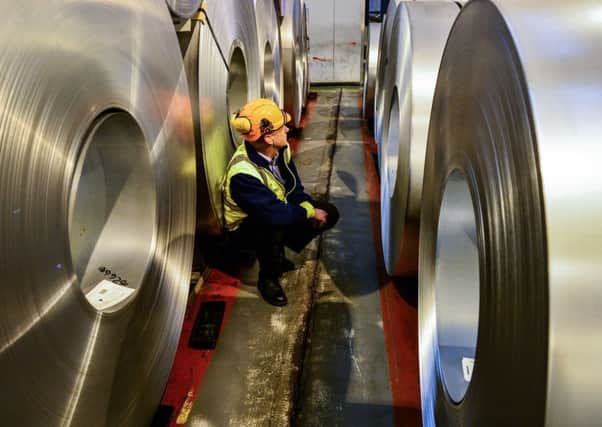Employment down for first time in four years


The Purchasing Managers Index (PMI) said conditions were “subdued” at the start of this year, with reduced staffing levels primarily due to job losses in the services sector.
Business activity rose at the weakest pace for more than two years while new orders increased only marginally, the survey of firms revealed.
Advertisement
Hide AdAdvertisement
Hide AdUlster Bank chief economist for Northern Ireland Richard Ramsey said: “Looking at the order books of firms, which have been broadly flat for the past two months, suggests that subdued growth might be with us for some time.”
Throughout 2018 the theme was one of ever-slowing growth, he said, with the final three months the weakest quarter in nine.
This trend has continued into this year, with January seeing private sector growth at a 28-month low.
The survey said the cooling of the economy was happening amid Brexit uncertainty.
Advertisement
Hide AdAdvertisement
Hide AdMr Ramsey added: “Whilst 2018 was characterised by a buoyant labour market, a record high in private sector jobs, and growing skills shortages, we are now perhaps at a turning point.
“The latest survey reports that staffing levels fell for the first time in four years.
“Indeed, the employment index dropped to a 67-month low.”
Danske Bank also said Brexit was weighing on people’s minds.
Consumer confidence picked up slightly towards the end of last year but 17% of those surveyed said the EU divorce negotiations had negatively affected them.
Advertisement
Hide AdAdvertisement
Hide AdA further 12% said the Government’s long-term Brexit objectives had impacted on confidence.
Meanwhile, around 40% of Northern Ireland’s small or medium-sized firms cancelled or postponed investment plans due to Brexit, the Allied Irish Bank (AIB) said.
More than half across the whole of Ireland have yet to begin planning even though around two thirds believe the divorce will have a negative impact.